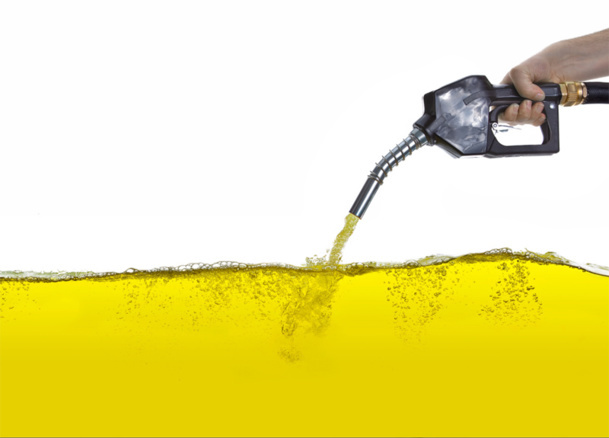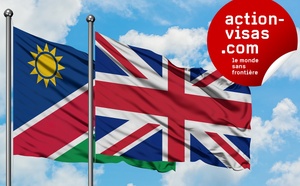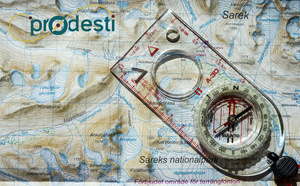
The current price is $48.70 per barrel, a decrease of 45% since last summer. This should translate by a purchasing price of the kerosene around €0.48 per liter. © rcfotostock - fotolia.com
Let’s make a few calculations.
Before the brutal drop of crude oil that began in the summer of 2014, gas prices were negotiated around $87 per barrel which translated by a price of €0.87 per liter of kerosene.
The current price is $48.70 per barrel, a decrease of 45% since last summer. This should translate in a purchasing price of kerosene close to €0.48 per liter. However, it is very difficult to find exact certified numbers. We can only make hypotheses for now.
An Airbus 320 consumes 5,400 liters per flight hour, amounting to a price of gas of €4,715 in the summer 2014, but of €2,595 now which amounts to saving of €2,120 per flight hour.
A medium-haul does around 3,500 hours of flying yearly. Well, the drop in crude oil prices could lead to saving up to €7,420 million per aircraft and per year.
With 143 medium-haul aircrafts, the annual amount represents 1.061 billion euros if we only look at the Air France fleet.
The savings on long-haul flights is even more spectacular. The hourly consumption of a 330/200 Airbus is of 14,400 liters of kerosene. By applying the same calculations, the savings per flight hour amounts to €5,670 and a long-haul flies around 5,000 hours per year or 28.34 million euros in savings per aircraft.
Let’s remember that Air France has a fleet of 107 long-hauls which accounts for a savings potential of more than 3 billion euros. Even for a small company like XL Airways, this is a great gift to accept.
Before the brutal drop of crude oil that began in the summer of 2014, gas prices were negotiated around $87 per barrel which translated by a price of €0.87 per liter of kerosene.
The current price is $48.70 per barrel, a decrease of 45% since last summer. This should translate in a purchasing price of kerosene close to €0.48 per liter. However, it is very difficult to find exact certified numbers. We can only make hypotheses for now.
An Airbus 320 consumes 5,400 liters per flight hour, amounting to a price of gas of €4,715 in the summer 2014, but of €2,595 now which amounts to saving of €2,120 per flight hour.
A medium-haul does around 3,500 hours of flying yearly. Well, the drop in crude oil prices could lead to saving up to €7,420 million per aircraft and per year.
With 143 medium-haul aircrafts, the annual amount represents 1.061 billion euros if we only look at the Air France fleet.
The savings on long-haul flights is even more spectacular. The hourly consumption of a 330/200 Airbus is of 14,400 liters of kerosene. By applying the same calculations, the savings per flight hour amounts to €5,670 and a long-haul flies around 5,000 hours per year or 28.34 million euros in savings per aircraft.
Let’s remember that Air France has a fleet of 107 long-hauls which accounts for a savings potential of more than 3 billion euros. Even for a small company like XL Airways, this is a great gift to accept.
The bigger companies will make more money
Autres articles
-
 Les aéroports vont-ils tuer le transport aérien ?
Les aéroports vont-ils tuer le transport aérien ?
-
 Quelles tendances post-Covid pour le secteur du transport aérien ?
Quelles tendances post-Covid pour le secteur du transport aérien ?
-
 La case de l’Oncle Dom : privatisation Toulouse-Blagnac... prends l'oseille et tire-toi !
La case de l’Oncle Dom : privatisation Toulouse-Blagnac... prends l'oseille et tire-toi !
-
 La case de l’Oncle Dom : APG World Connect… mieux que les Assises du Transport Aérien ?
La case de l’Oncle Dom : APG World Connect… mieux que les Assises du Transport Aérien ?
-
 La case de l’Oncle Dom : on transformera (peut-être) la France mais... pas la DGAC !
La case de l’Oncle Dom : on transformera (peut-être) la France mais... pas la DGAC !
These numbers make us dizzy. I’m insisting that they are only estimates. We would really appreciate it if companies communicated more on the topic in order to avoid any twisted interpretation.
So in theory, the bigger the airline company, the more money they will make in 2015 because the price of gas is one of the major components of the cost price of air transport. Furthermore, transporters that have sufficiently complained about the rise of oil prices should now be rejoicing, officially, over its drop.
Yet, let’s bet that it won’t happen like this. First, because transporters engage since years in the speculation of future oil prices.
This is called “hedging.” In other words, it consists in covering with insurances a risk of price variation of a product.
In fact, the system allows to protect oneself against the unwanted rises, since the risk is absorbed by insurances. We would love to see to how much airline companies have protected themselves on the price of oil for 2015.
Let’s bet that it didn’t get much lower than $80 per barrel. If the prices escalate, the companies win, but if it drops, they can’t take advantage of it.
So in theory, the bigger the airline company, the more money they will make in 2015 because the price of gas is one of the major components of the cost price of air transport. Furthermore, transporters that have sufficiently complained about the rise of oil prices should now be rejoicing, officially, over its drop.
Yet, let’s bet that it won’t happen like this. First, because transporters engage since years in the speculation of future oil prices.
This is called “hedging.” In other words, it consists in covering with insurances a risk of price variation of a product.
In fact, the system allows to protect oneself against the unwanted rises, since the risk is absorbed by insurances. We would love to see to how much airline companies have protected themselves on the price of oil for 2015.
Let’s bet that it didn’t get much lower than $80 per barrel. If the prices escalate, the companies win, but if it drops, they can’t take advantage of it.
Restore profitability in the sector
For years, airline companies have been playing this little game, but since no one can predict the future, it leads to insurance companies getting richer.
In fact, transporters have agreed to separate the price of gas from the calculation of the cost price and thus have justified these extra-taxes for gas.
But let’s pretend that the drop in oil price has a true effect on the cost price of 2015. Will this be beneficial to air transport?
Will companies take advantage to lower their prices further and continue this suicidal competition game?
Air transport must find, not find again, comfortable margins.
This is in the interest of airline companies, of course, but also in that of clients. Because they expect air transport to be of great quality and extremely reliable. It may be time to restore profitability in the sector.
In fact, transporters have agreed to separate the price of gas from the calculation of the cost price and thus have justified these extra-taxes for gas.
But let’s pretend that the drop in oil price has a true effect on the cost price of 2015. Will this be beneficial to air transport?
Will companies take advantage to lower their prices further and continue this suicidal competition game?
Air transport must find, not find again, comfortable margins.
This is in the interest of airline companies, of course, but also in that of clients. Because they expect air transport to be of great quality and extremely reliable. It may be time to restore profitability in the sector.

Jean-Louis Baroux, is the former president of APG (Air Promotion Group) and the creator of the CAF (Cannes Airlines Forum) which became the World Air Forum.
Air Transportation Specialist, he signed at L'Archipel Publishers ''Compagnies Aériennes: la faillite du modèle” [“Airlines: A Bankruptcy Model” – translator’s note], a book that all tourism professionals should have read.
The copyrights will be donated to charity. It can be purchased at: www.editionsarchipel.com
Air Transportation Specialist, he signed at L'Archipel Publishers ''Compagnies Aériennes: la faillite du modèle” [“Airlines: A Bankruptcy Model” – translator’s note], a book that all tourism professionals should have read.
The copyrights will be donated to charity. It can be purchased at: www.editionsarchipel.com

























![Sports d'hiver : un spectacle populaire mais une pratique de privilégiés [ABO] Sports d'hiver : un spectacle populaire mais une pratique de privilégiés [ABO]](https://www.tourmag.com/photo/art/large_16_9/94255971-65749856.jpg?v=1770739085)















